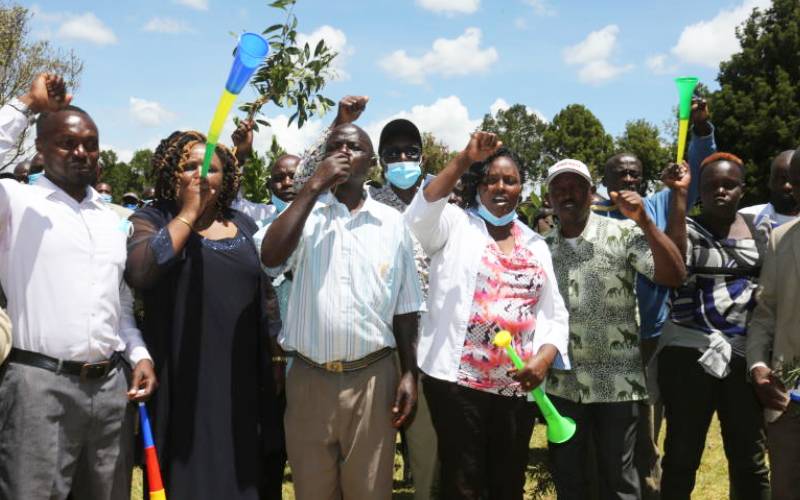×
The Standard e-Paper
Kenya’s Boldest Voice

Teaching and non-teaching staff of Moi University demonstrate along the streets in the campus in Eldoret. [Peter Ochieng, Standard]
Moi University's main campus in Kesses, Uasin Gishu county, has been closed indefinitely following the staff strike which started on Monday.